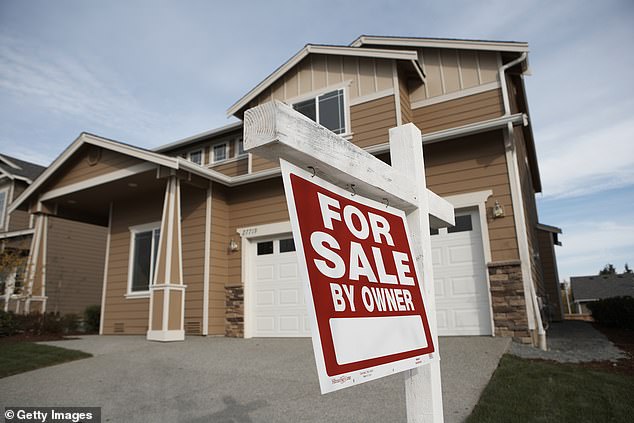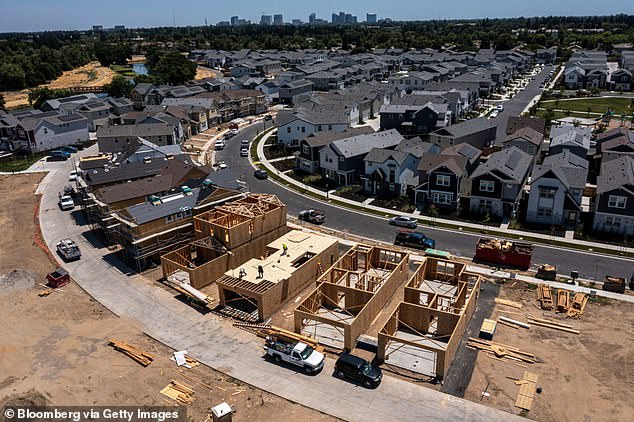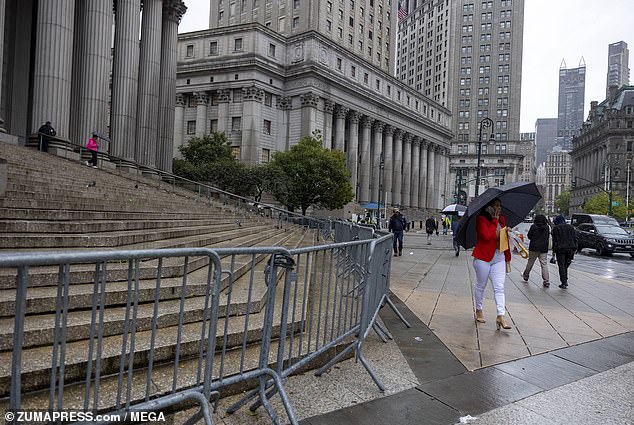Growing number of homeowners are selling their houses for LESS than what they paid for them – with more than 3% selling at a loss between May to July: San Francisco, Detroit, Chicago and New York hit hardest with losses of more than 6%
A growing number of homeowners are selling their properties at a loss as peak prices start to fall during the Covid pandemic.
Three percent of all homes sold in the US between May and July sold for less than what the owners bought them for, new data shows Redfin has emerged, thanks to high interest rates and an exodus of workers returning to the office.
San Francisco topped the charts by a country mile for the area where sellers were hit hardest, with 12.3 percent of homeowners passing on their properties at a loss, costing them an average of as much as $100,000.
This compared to just five percent of homes sold at a loss in the Bay Area city during the same period last year.
Detroit had the second-largest share of homes sold for less than they were purchased this year — at 6.9 percent, for an average loss of $18,000.
Three percent of all homes sold in the US between May and July sold for less than what the owners bought them for, new data from Redfin shows
Chicago came in third with 6.5 percent sales at an average loss of $26,000, followed by New York, where 5.9 percent of properties sold at an average loss of $100,000.
In Cleveland, 5.8 percent of homes sold at a loss, losing an average of $18,000.
San Francisco experienced outsized declines in home prices because it was one of the first markets to see prices fall when high mortgage rates caused a slowdown in the housing market last year.
By April of this year, the average sales price of a home in the Bay Area city was down a record 13.3 percent year over year — more than triple the national decline of 4.2 percent.
The total value of homes in San Francisco has fallen by about $60 billion since last summer, a separate Redfin analysis found.
San Francisco is also an outlier because it is home to some of the most expensive real estate in the United States, meaning the price drops were more dramatic.
It is also the beating heart of the tech industry, which has suffered mass layoffs due to the pandemic, while remote working has allowed dozens of people to move to cheaper areas.
“Some Bay Area apartments are now worth less than what their owners bought them for in 2018 and 2019, in part because commuting from Oakland and other outlying areas to downtown San Francisco no longer really exists,” said local Redfin Premier Real . real estate agent Andrea Chopp.
‘There are buyers, but they are much more careful and choosy than when mortgage rates were low.
“The Bay Area housing market was previously unsustainable, so this correction is likely healthy, but the unfortunate thing is that prices remain unaffordable for many people, especially with rates now above 7%.”

According to real estate company Redfin, an increase in back-to-work policies is motivating one in 10 homeowners to move

More and more companies are asking their employees to return to work in the office
A previous Redfin study found that an increase in return-to-work policies motivated one in 10 homeowners to move, and many of these people bought their homes when pandemic prices were at their peak.
Others bought large rural homes during the pandemic for a quieter work-from-home environment.
Major companies like JPMorgan, GEICO and HSBC have sent their staff back to the office at least a few days a week after having their staff work remotely for almost three years.
A real estate agent in Boise, Idaho, said she has had a few clients who are selling their homes after just a year because their Seattle-based employer is ordering employees to return to the office.
That means they now want to live closer to the city on the left, making the daily commute shorter. It’s a prospect that some Americans who fled metropolitan areas during the pandemic are now facing.
The couple will most likely sell their home at a loss, as they bought when prices peaked in the wake of the pandemic.
“My salespeople both work for the same company, which told them they had to be in the office three days a week or they would lose their jobs. They have six months to take the step. They will probably have to take a $100,000 loss on their house,” said real estate agent Shauna Pendleton.
“Their new house in Seattle won’t be anywhere near the size of their house in Boise, and their mortgage interest rates will be much higher.”

Some people who bought homes in rural areas during the COVID-19 pandemic are being forced to sell them and move back to the city as companies impose return-to-office policies and abandon remote working

Return-to-work policies motivate one in 10 U.S. home sellers to move, according to a housing survey collected by Redfin from May and June 2023

Major companies like JPMorgan, GEICO and HSBC have ordered their staff to return to the office at least a few days a week after having their staff work remotely for almost three years
Donna Rutter, 59, bought an 11-acre ranchette in the Texas community of Rocky Creek Ranch three years ago, but she has now put her dream home on the market for $1.75 million because a phone call back to the office will cut into her daily commute. Each way took 45 minutes.
Rutter – who owns her own accounting firm – told The Wall Street Journal: “Small businesses weren’t really set up for remote work. My clients want me in the office. They want to meet me.’
Seattle-based real estate agent David Palmer said he has received about 10 percent more inquiries since the start of 2023 than in 2022 from clients looking to move closer to the city because their jobs are personal-based.
“I have a buyer who left town during the pandemic. He now works for Google and to make a long story short, he has to commute three days a week and that’s about a two-hour round trip,” says Palmer. “So he’s actively looking to buy something.”
